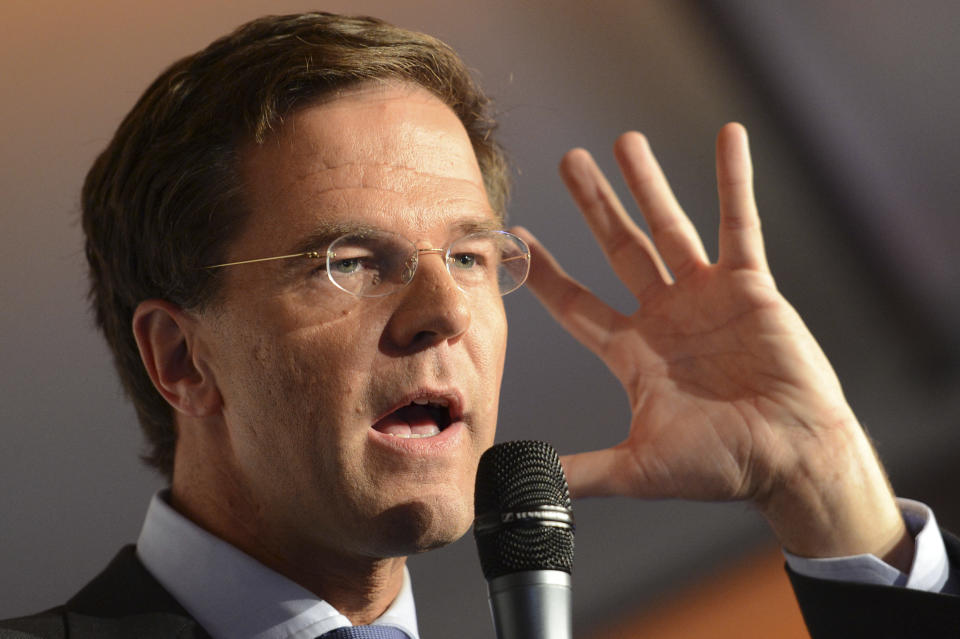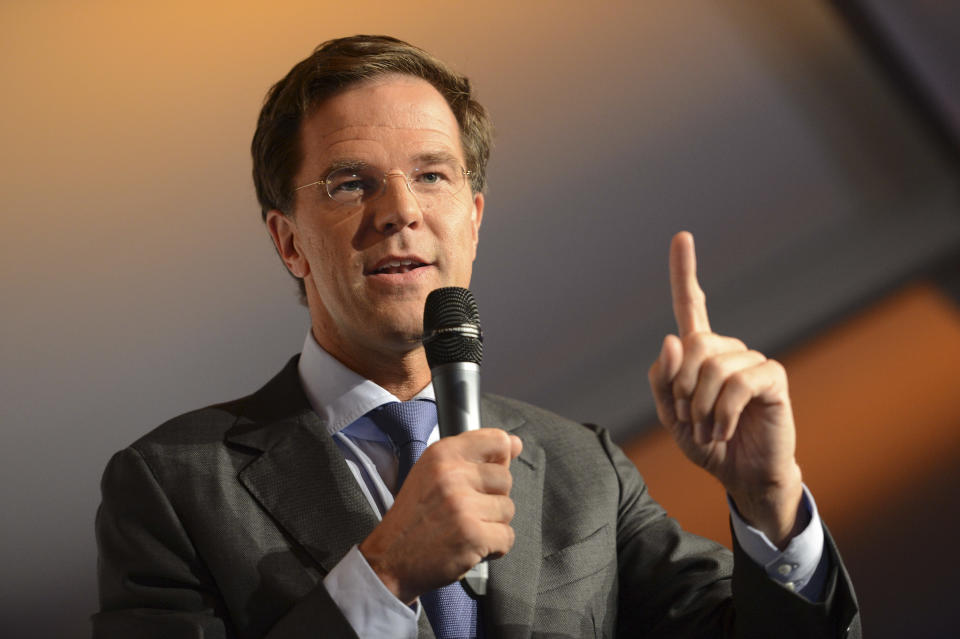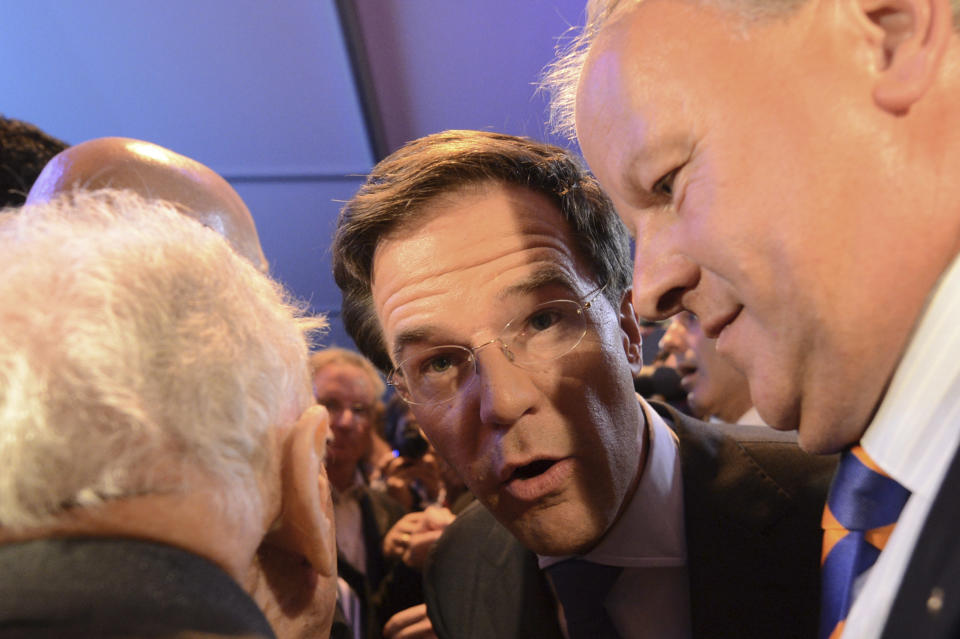Dutch prepare for conservative-Labor coalition
THE HAGUE, Netherlands (AP) — Work to build a new ruling Dutch coalition started Thursday, after conservative leader Mark Rutte bucked a European trend by winning an election despite pushing through tough austerity measures to counter the continent's devastating debt crisis.
"Now we have to focus on forming, as soon as possible, a stable government," Rutte said as lawmakers from his free-market VVD party cheered.
Rutte later said he would not discuss coalition negotiations, to avoid jeopardizing the sensitive talks.
Rutte's party won 10 extra seats to give it 41 overall in the 150-seat House of Representatives. His closest rival — and now most likely coalition partner — Diederik Samsom of Labor saw his party grow by nine seats to 39.
It remains unclear when the two will meet to discuss joining forces, but it appeared they were in no hurry.
Former Social Affairs Minister Henk Kamp, a senior member of the VVD party, was appointed to investigate the possible coalitions and will report back to lawmakers when they meet for the first time since the election on Sept. 20.
The major gains for two of this nation's strongest supporters of the European Union were a significant boost for EU unity and a heavy defeat for Euro-skeptics.
Firebrand populist Geert Wilders was hammered at the polls, losing nine of his Freedom Party's 24 seats after campaigning to pull the Netherlands out of the 27-nation European Union and dump its shared currency, the euro. The far-left Socialist Party was unchanged at 15 seats.
German Foreign Minister Guido Westerwelle said the election outcome "strengthens Europe and weakens populists and 're-nationalists.'"
"After the important decisions of the last few days, we must now use the momentum to develop Europe further and make it fit for the future in times of globalization," he added.
Guy Verhofstadt, who leads the conservative Alliance of Liberals and Democrats for Europe in the European Parliament, said the results would resonate well beyond Dutch borders.
"They are a slap in the face of anti-European extremism and populism," he said Thursday. "Dutch voters clearly chose to reinforce pro-European measures."
Since Europe's debt crisis erupted in 2009 and plunged the continent into the economic doldrums, longtime Italian leader Silvio Berlusconi quit, Greece's government fell and French President Nicolas Sarkozy — a conservative like Rutte — was voted out of office. Governments also fell in the debt-strapped countries of Spain and Ireland.
Rutte, a 45-year-old piano-playing bachelor known for his boundless optimism, somehow reversed the tide.
"It is a very strong message from the Dutch public that they are not punishing parties that want to be credible with their solutions," said Piotr Kaczynski of the Center for European Policy Studies.
Rutte and Samsom will now have to see if they can build a coalition.
That may not be easy. Rutte called Labor's policies "dangerous for the Netherlands" during the campaign, while Samsom says he wants to see a more social platform from the next government.
"The direction can and must change," Samsom told supporters in Amsterdam. "Because the right-wing policies of the last two years cannot continue."
The leader of the House of Representatives met party leaders Thursday afternoon to investigate possible coalitions and was to report to Queen Beatrix later in the day.
Analysts say Rutte and Samsom should be able to reach agreement, though some say they may need a third centrist party in a coalition because VVD and Labor together do not command a majority in the upper house of parliament, meaning they could have trouble passing new legislation.
"Politically, they should be able to strike a deal within days," said Adriaan Schout of the Clingendael think tank. "They may want to show the public that they are fighting a bit harder and take some more time."
Rutte, meanwhile, is sticking to his message that austerity is the best cure for the debt crisis. The fact that he managed to win despite that message is good news for German Chancellor Angela Merkel, another conservative leader facing re-election next year.
"(I want) to enable this country to emerge stronger from this crisis, to continue to reduce our government's deficit, to continue to make our economy grow, to continue our upward trend," Rutte said.
The election's biggest loser was Wilders, who soared to prominence with outspoken criticism of Islam before turning on the EU.
He remained defiant, saying he would continue to fight "to protect the Netherlands against Europe, against mass immigration, against the (European) super-state."
___
Associated Press reporter Toby Sterling in Amsterdam contributed to this story.






